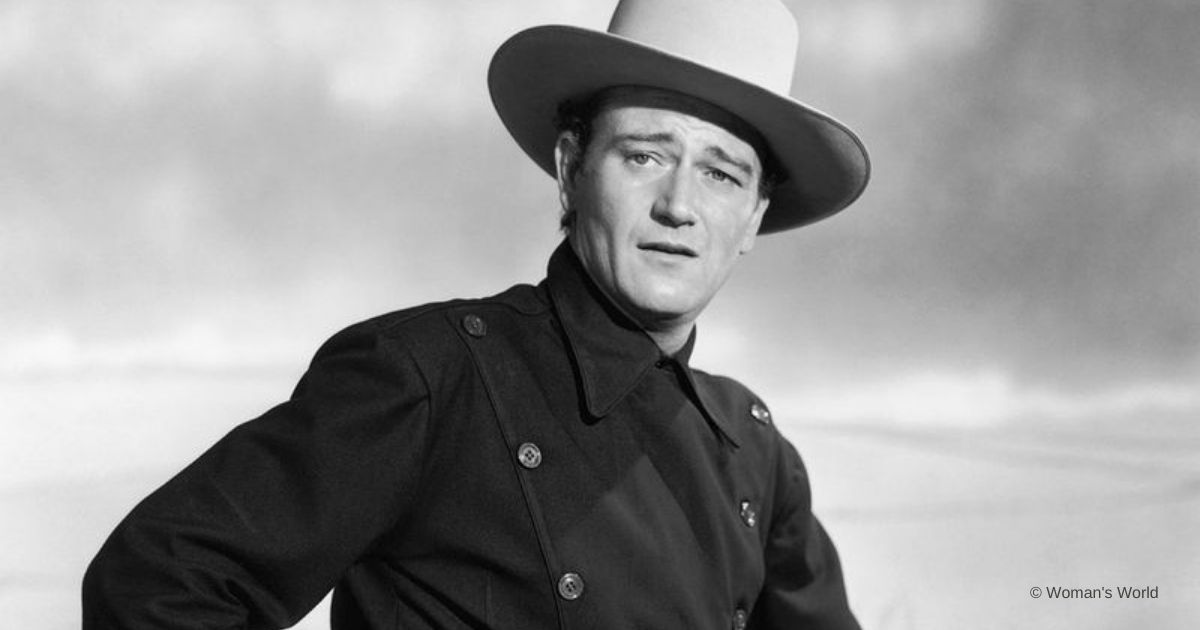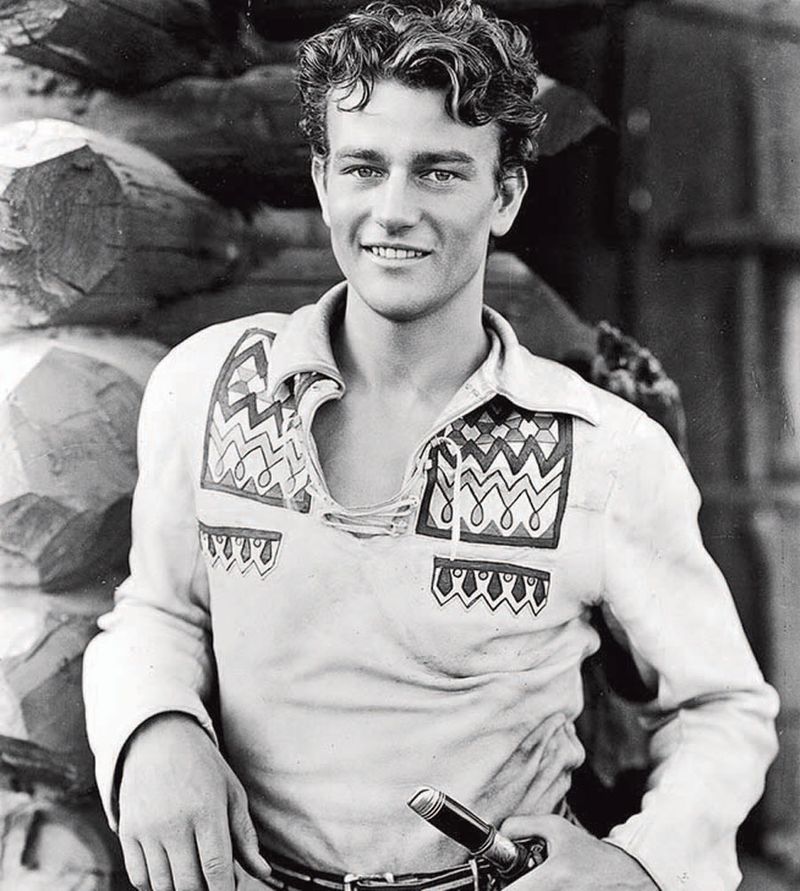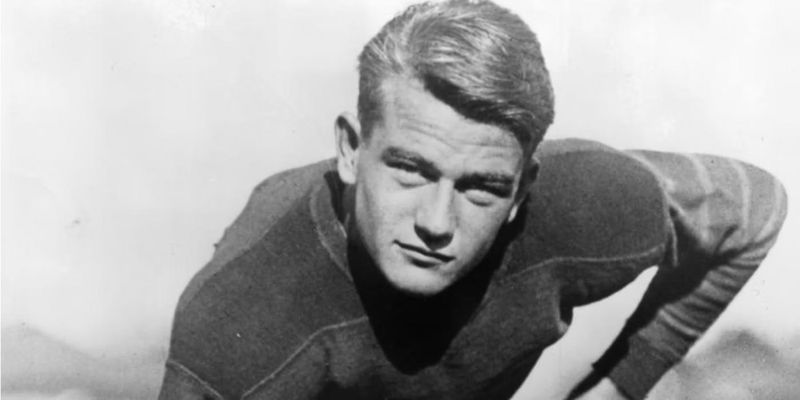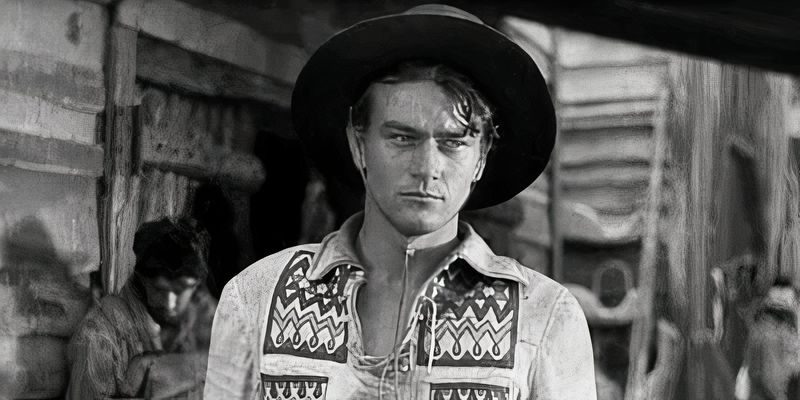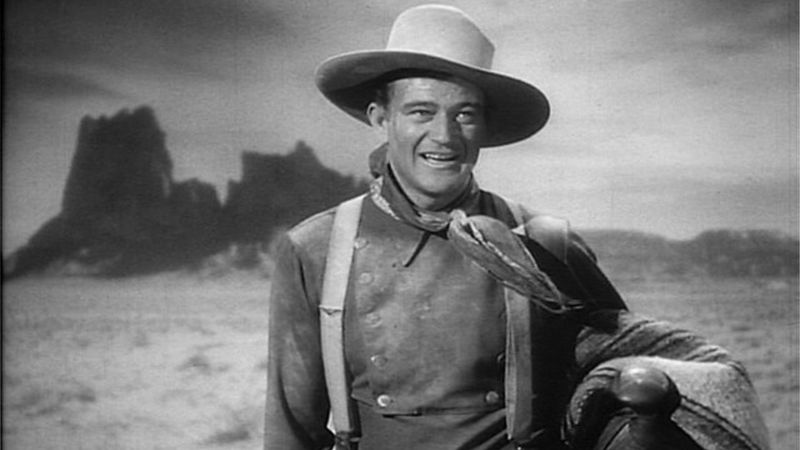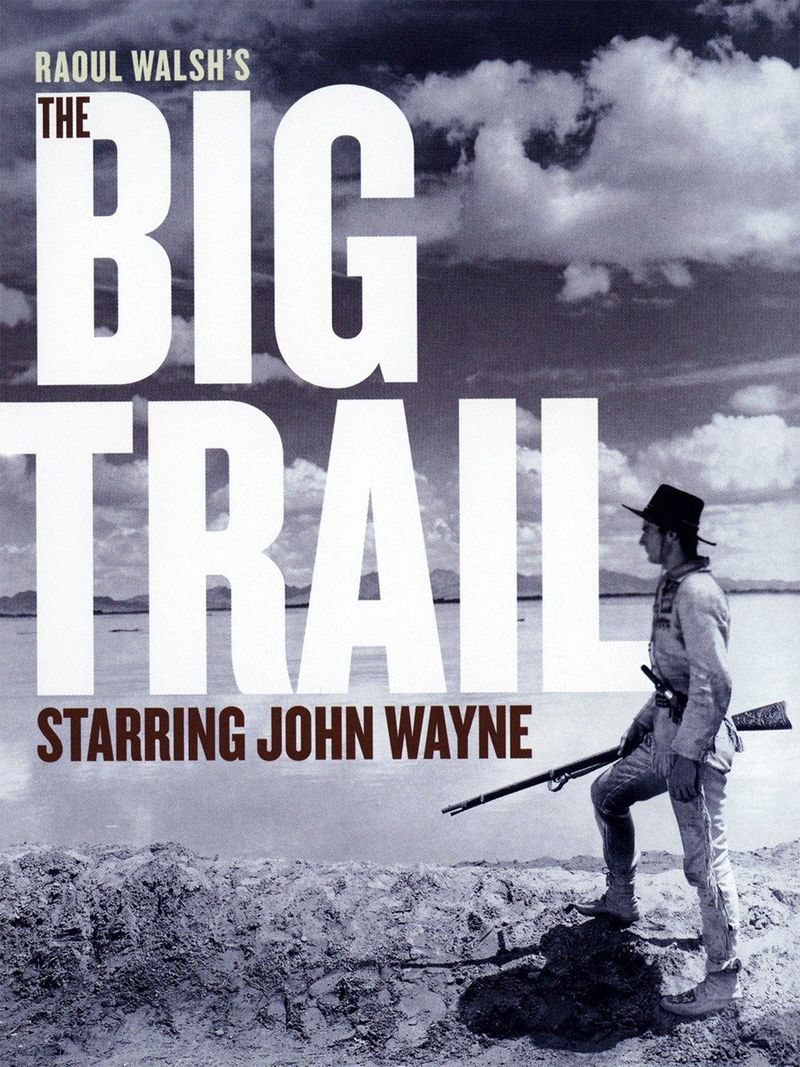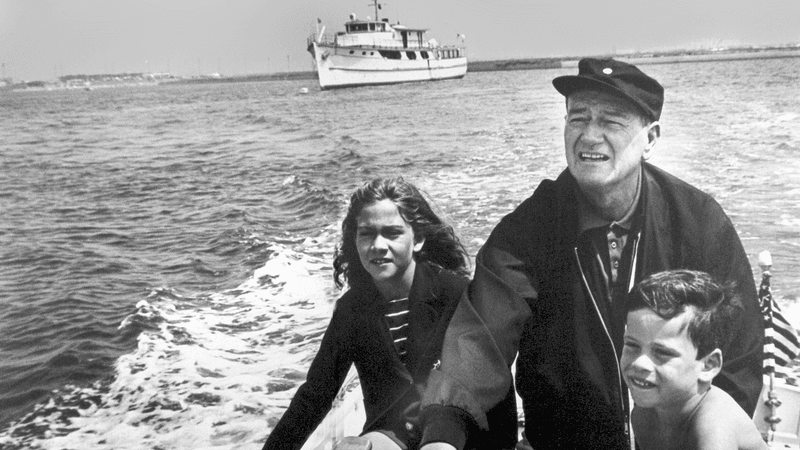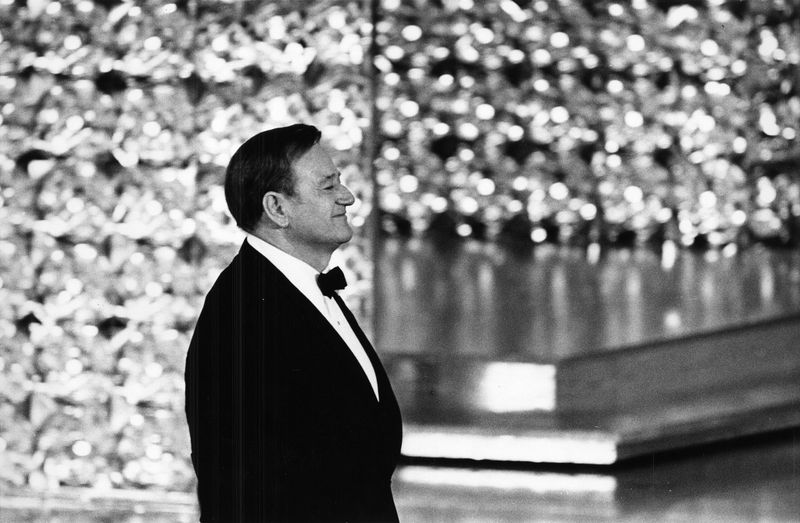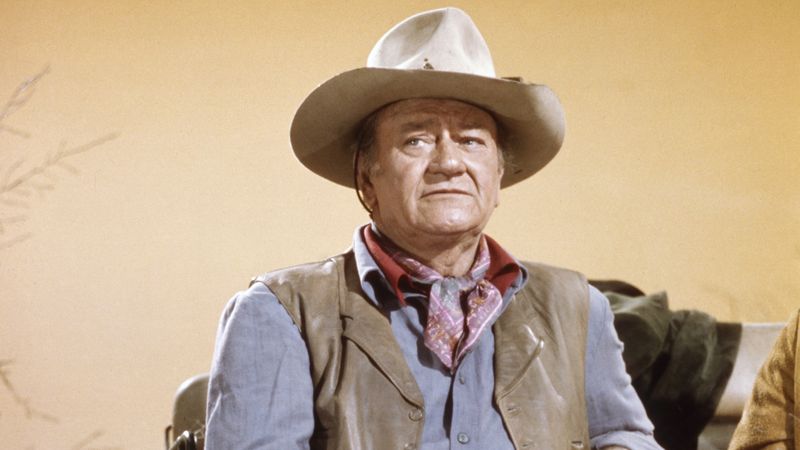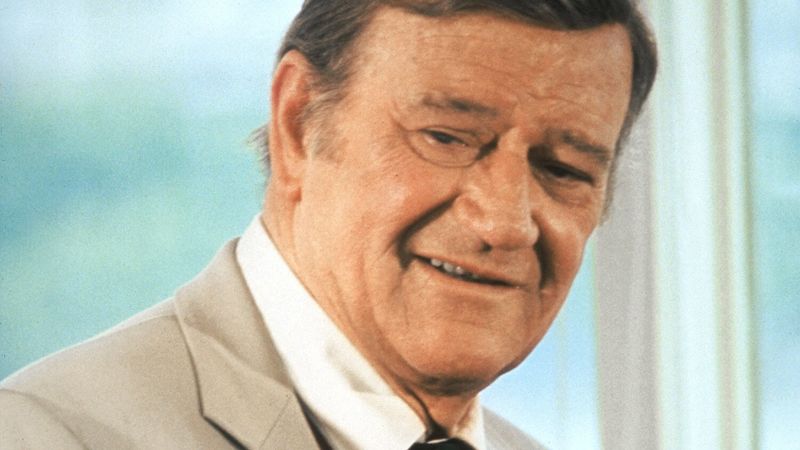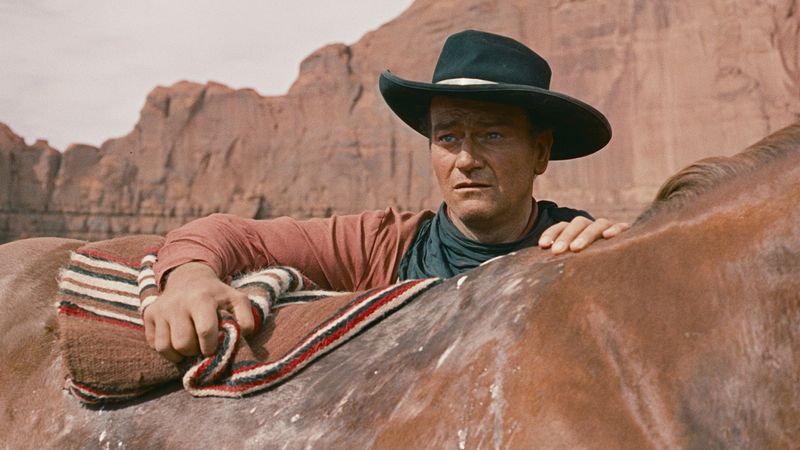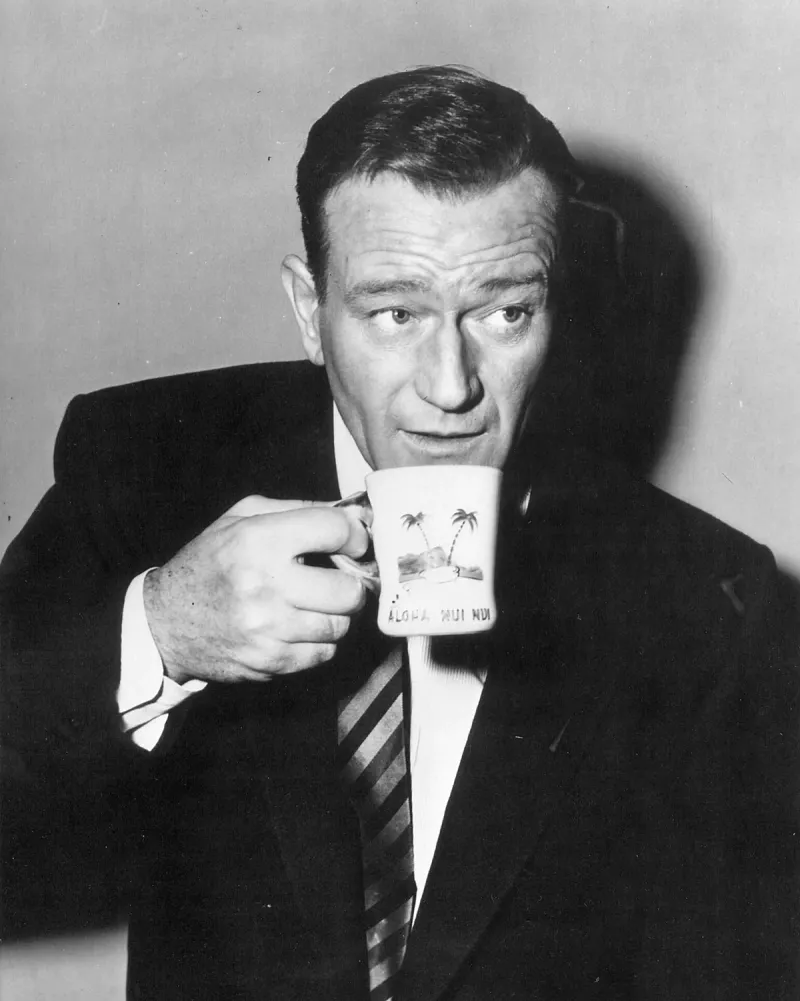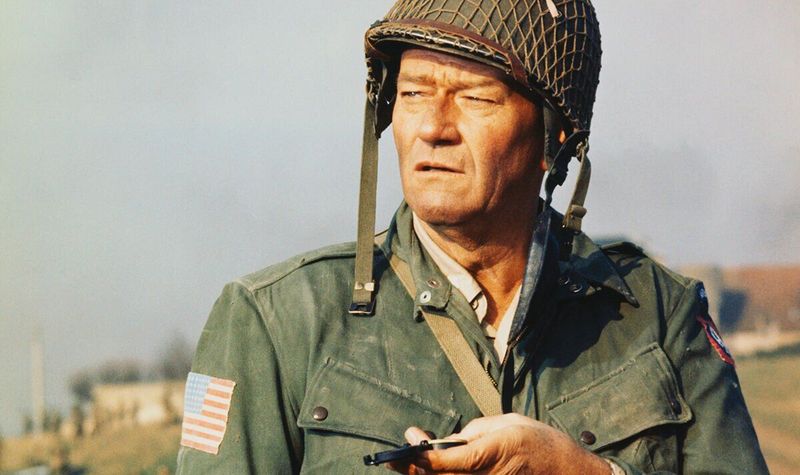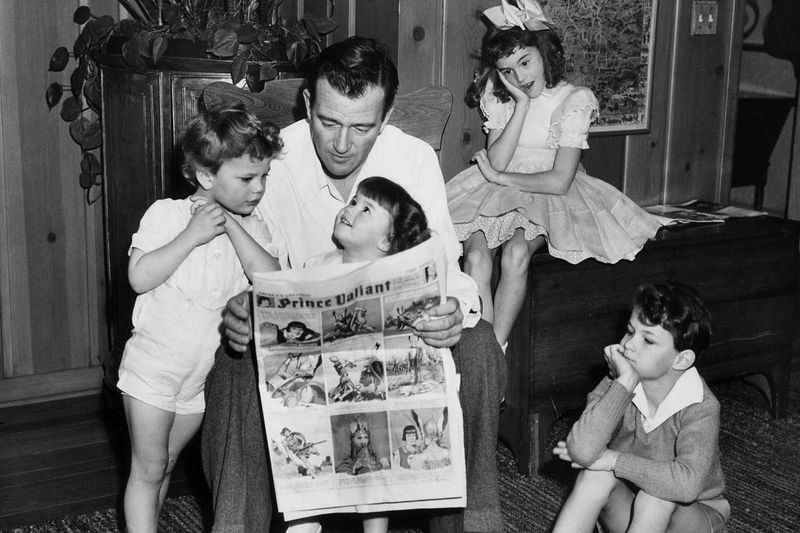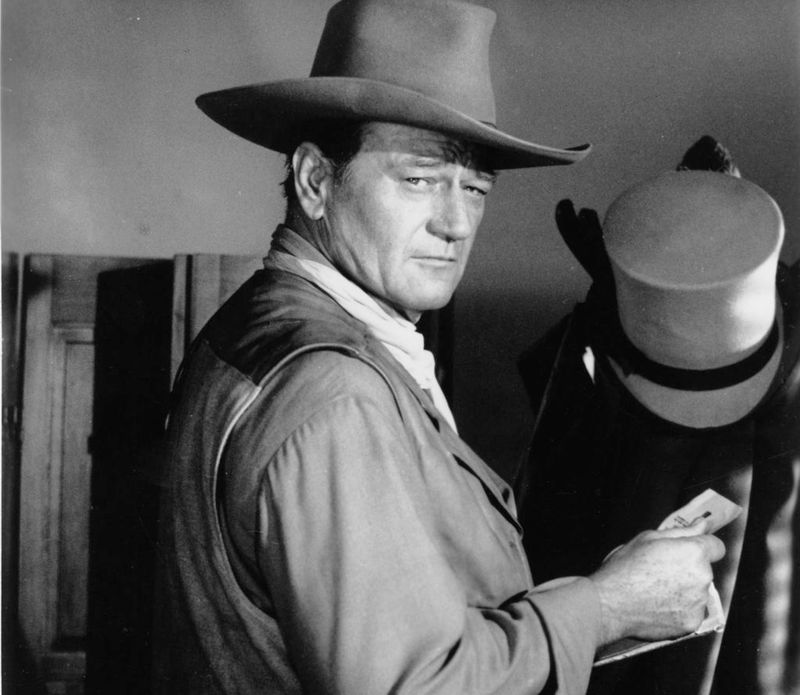John Wayne, an iconic figure in American cinema, continues to captivate audiences with his towering presence on and off the screen.
Known for his compelling performances and larger-than-life persona, Wayne’s life is filled with intriguing stories and lesser-known facts that reveal a multifaceted character.
This blog post uncovers 14 surprising facts about John Wayne that might just blow your mind, offering a fresh perspective on this legendary actor.
1. John Wayne’s Real Name
John Wayne wasn’t always the rugged cowboy everyone knew him to be. Born Marion Robert Morrison, Wayne’s name change was a pivotal moment in his career.
Growing up in Winterset, Iowa, his original name was often seen as a mouthful or even feminine by Hollywood standards.
The transition to “John Wayne” happened when he was getting his start in the film industry, and it was largely driven by studio executives who believed a strong, memorable name would attract audiences.
This change marked the beginning of his path to becoming a legendary icon in the film industry.
2. Football Scholarship
Before becoming a movie star, John Wayne was an athlete with a promising future. He attended the University of Southern California on a football scholarship.
His robust physique and sportsmanship made him a standout on the field. Unfortunately, a bodysurfing accident injured his shoulder, abruptly ending his athletic career. This unforeseen event, however, steered him towards acting.
While recuperating, he began working at local film studios, leading to small roles and eventually a storied career in Hollywood. The scholarship and the injury were turning points that indirectly led to his stardom.
3. John Wayne’s Breakthrough Role
John Wayne’s rise to fame was marked by his performance in Stagecoach, a 1939 classic directed by John Ford. At that time, Wayne had already appeared in numerous B-movies, but Stagecoach offered him the breakthrough he needed.
Playing the Ringo Kid, he captivated audiences with his gritty yet charismatic portrayal. This film not only cemented his status as a leading man in Westerns but also showcased his ability to fill the screen with an undeniable presence.
His portrayal in Stagecoach remains a defining moment in his career, solidifying his place in Hollywood history.
4. The Duke’s Political Influence
John Wayne, known affectionately as “The Duke,” wasn’t just a cinematic icon; he was also a significant political figure. During the 1960s and 70s, Wayne’s conservative views made him a prominent voice in American politics.
He was an outspoken supporter of U.S. military involvement in Vietnam and a staunch advocate for Republican candidates. His influence extended into public opinion, as he often used his platform to promote patriotic themes.
Wayne’s political involvement demonstrated his commitment to his beliefs, shaping his public persona as not only an actor but also as an influential cultural figure.
5. Wayne’s Unofficial Movie Title
Among Hollywood’s inner circles, John Wayne was famously known for his unofficial nickname, “The Duke.” This moniker originated from his early acting days when he starred in The Big Trail in 1930.
Although the film wasn’t a commercial success, it was one of the first to be shot in a widescreen format and demonstrated Wayne’s potential. His performance, though not widely acclaimed at the time, earned him a place in Hollywood’s burgeoning film scene.
The title “The Duke” stuck with him throughout his career, symbolizing his regal presence and commanding roles in numerous films.
6. John Wayne’s Love for the Ocean
Despite his cowboy image, John Wayne had a profound love for the ocean. He often spent his free time sailing, a passion he discovered later in life.
Wayne owned a yacht named The Wild Goose, which became his sanctuary away from the spotlight. His time at sea was cherished, offering him peace and relaxation. His affinity for the water was a departure from his rugged on-screen persona, revealing a more tranquil side.
The ocean provided Wayne with a sense of freedom and adventure, reminiscent of the frontiers he often portrayed in his films.
7. The Presidential Medal of Freedom
In 1980, John Wayne was posthumously awarded the Presidential Medal of Freedom, America’s highest civilian honor.
This accolade recognized his significant contributions to American cinema and his unwavering support for national causes. Although Wayne passed away in 1979, the award highlighted his enduring influence on American culture and patriotism.
His films often embodied the spirit of the American frontier, resonating with audiences worldwide.
The medal was a testament to his legacy, celebrating his role as a cultural icon who inspired through his portrayals of strength, courage, and the essence of the American spirit.
8. Wayne’s Health Battles
John Wayne’s life wasn’t just about fame and accolades; it was also marked by health struggles. In 1964, he was diagnosed with lung cancer, leading to the removal of one lung and several ribs.
Despite this, Wayne continued working, demonstrating resilience and determination. His battle with cancer became public, drawing attention to health issues and encouraging others to seek medical help.
His openness about his illness was groundbreaking at the time, helping to destigmatize cancer and inspiring many. Wayne’s health battles showed his vulnerability and strength, enhancing his legendary status both on and off-screen.
9. John Wayne’s Unfinished Projects
Even in his later years, John Wayne was actively involved in numerous projects, some of which remained unfinished. His passion for storytelling and film never diminished, and he constantly sought new ventures.
Wayne had plans for movies and television series that unfortunately never materialized due to his declining health. Despite this, his legacy is filled with over 170 films that showcase his diverse talents.
The unfinished projects highlight his relentless ambition and passion for the industry. They serve as a reminder of his dedication to cinema, even as he faced life’s inevitable challenges.
10. Wayne’s Influence on the Western Genre
John Wayne’s impact on the Western genre cannot be overstated. His portrayal of rugged cowboys and stoic lawmen redefined the genre, setting a standard for future Western films.
Wayne’s collaboration with directors like John Ford resulted in masterpieces such as The Searchers and True Grit. These films showcased his ability to bring depth and humanity to characters that might otherwise be seen as one-dimensional.
His influence extends beyond the screen, as his presence became synonymous with the ideals of bravery and justice. Wayne’s legacy in Westerns remains a cornerstone of American cinema.
11. The Duke’s Business Ventures
John Wayne was not only a film star but also a savvy businessman. Throughout his career, he invested in various ventures, including a production company and a cattle ranch.
His entrepreneurial spirit was evident in his approach to both film and business. Wayne understood the value of branding and used his image to market products ranging from whiskey to clothing.
His business acumen allowed him to maintain control over his projects, ensuring they aligned with his vision. The Duke’s ventures demonstrate his multifaceted talents and determination to succeed beyond the silver screen.
12. Wayne’s Patriotic Films
John Wayne’s filmography is filled with patriotic themes that resonated deeply with audiences. During World War II and the subsequent Cold War era, Wayne starred in numerous films portraying American soldiers and heroes.
These roles solidified his image as a symbol of American strength and resilience. Movies like Sands of Iwo Jima and The Green Berets celebrated the valor of the U.S. military, reinforcing Wayne’s commitment to patriotic storytelling.
His films provided inspiration and morale for audiences, especially during turbulent times. Wayne’s contributions to patriotic cinema remain an enduring aspect of his legacy.
13. John Wayne’s Family Life
Although John Wayne was often on set, his family life was an integral part of who he was. Wayne was married three times and had seven children.
Despite his busy career, he remained dedicated to his family, often bringing them on movie sets. His children occasionally appeared in his films, strengthening their bond. Wayne’s commitment to family was evident in his efforts to balance work and home life, creating a nurturing environment.
His role as a father and husband was just as important to him as his film career, showcasing his deep love and devotion.
14. The Duke’s Enduring Legacy
John Wayne’s influence extends far beyond his film career. He has become a cultural icon, representing the quintessential American spirit.
Statues and memorials in his honor are found across the United States, celebrating his contributions to cinema and society. Fans of all ages continue to admire his work, ensuring that his legacy endures.
Wayne’s distinctive voice, swagger, and charisma left an indelible mark on popular culture. His films remain beloved classics, illustrating timeless themes of courage and integrity.
The Duke’s enduring legacy is a testament to his impact on American culture and the entertainment industry.
